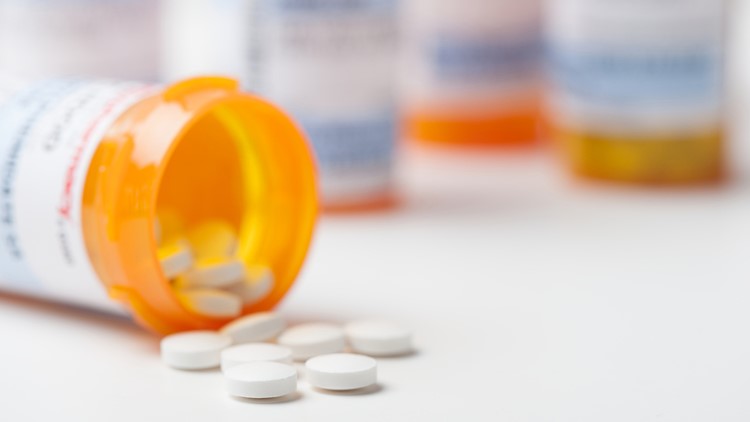ST. LOUIS COUNTY — For the first time since this opioid epidemic really caught momentum, St. Louis and St. Charles County are seeing drug overdose numbers level off.
It may not sound like a huge achievement, but leaders say it is, especially when numbers nationwide only continue to climb.
For the opioid crisis, Kyle Gaines with the St. Charles Ambulance District said it's been around for a while, but for decades, we were all in denial.
"You’d tell people this and they’d look at you like you had two heads. Heroin is on a problem, that’s not happening. Over the last few years people have woken up to the fact that it is in their hometown and they know families that have been personally impacted," said Gaines.
Gaines said overdoses got to the epidemic level due to overprescribing pain medication.
"Often times we were seeing people prescribed prescriptions for two, three, four months’ worth of opiates when perhaps a week or two supply would have been more appropriate," he said.
Scott Collier with the Drug Enforcement Administration said nearly 70 percent of individuals with addictions start with the pharmacy and ultimately transition to the street.
"Those tablets are expensive. The black-market value is about a buck a milligram nationally, so if you have a 30 mg tablet that’s going to cost $30. I can get heroin for $5 to 10," said Collier.
Overdoses have tripled in the last decade. There were 606 cases last year with 80 deaths in St. Charles County alone.
That's what prompted St. Charles County prosecutor, Tim Lohmar, to assemble a task force called C.R.U.S.H. – Community Resources United to Stop Heroin.
The collections of organizations meet at least once a month to strategize how to fight a multi-front war.
"Often whenever we talk about reaching groups, people often say, do you go into schools to talk? Yes, we do. But we also go into churches, we also go into senior centers, we also talk with homeowner associations," said Gaines.
We asked Gaines about what strategies are working.
"Face to face interactions with families in our communities appear to be going a long way," he said.
Collier said from his standpoint, it's been making it clear to those struggling with addiction his agency is not out to arrest you.
"These folks, simply put, are victims. We are going to go after trafficking organizations. That can be a gang in the city. That could be a cartel," said Collier.
Gains said another program that has seen incredible success is talking to overdose victims just moments after they are revived about seeking help immediately.
"56, 57 percent say yes, can you help me. Of that 56% figure, ultimately 70% ultimately connect with a counselor," said Gaines.
Ultimately, both say, to continue making progress, all of us have to change our perception of those struggling with addiction.
"I would say challenge yourself to view this through the lens of a disease process and try to understand it through that point of view," said Gaines.
Even though the Genesis of this epidemic started with denial, it can end with a revelation.
"We all need to care enough to pay attention to those who are hurting and need help," said Collier.
Another real key to success for this group, widespread access to Naloxone and Narcan.
Both men urge everyone to get trained on how to administer the drug. They say, even if no one in your family struggles with addiction, you may run into someone who could use your help.



